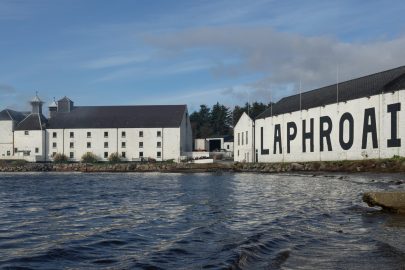Oct 10, 2022 Politics
The GreenLeft Network — the faction of the Greens working to embed a class, race and gender analysis into their party’s politics — made its mark as any self-respecting faction should: on social media. In the 2017 parliamentary term the network made headlines after a series of their discussions were leaked to the then-Stuff reporter Henry Cooke. The leaked screenshots ranged from internal criticism of the former Budget Responsibility Rules to the network’s ranking of candidates for the 2020 election which, perhaps controversially, left the Auckland Central MP Chlöe Swarbrick out of its top 10. Instead, the network’s wish list ranked its own members — co-leader Marama Davidson and MPs Jan Logie and Teanau Tuiono — in the first, second and third positions respectively.
This is hard to square with the speculations of some political commentators who suggested that the network’s apparent push to reopen nominations for James Shaw’s co-leadership position was an effort to position Swarbrick as the incoming leader. In July, members of the GreenLeft Network, the Young Greens, and others managed to muster enough votes at conference (25% of delegates) to vacate Shaw’s co-leadership position and force nominations to reopen. It was an embarrassingly public censure for the Climate Change Minister, who probably thought he was safe, and it was a cathartic moment for the increasing number of members fed up with his compromises. Was this a green spill?
No. In early reporting, the GreenLeft Network was credited with orchestrating the vote to reopen nominations. In truth, the faction leading the successful effort was the Young Greens. Party insiders credit the GreenLeft Network with better judgement than to just reopen nominations in the hope that something — anything — might happen. The network is better organised than that. It can cite a majority of sitting MPs as members — Davidson, Logie, Tuiono, Elizabeth Kerekere, Golriz Ghahraman, and Ricardo Menéndez March. In other words, if the network was organising a challenge, it could almost certainly name a challenger.
But this didn’t stop a narrative forming that a sort of Trotskyist plot was unfolding within the Greens. On RNZ, Peter Wilson wrote “the unexpected move against [Shaw] was led by left-wing members”. The Herald’s Thomas Coughlan told his paper’s Front Page podcast, “There is a group in the party called the GreenLeft Network — and they are the most left-wing members of the party. They are the closest thing to… a faction of people, broadly speaking, who have been the most dissatisfied with Shaw’s leadership.” I was wrong, too, writing on Stuff that the network was in the driver’s seat, organising delegates to vote to re-open nominations as an expression of dissatisfaction.
One element of that claim is correct. The GreenLeft Network, the Young Greens and more centrist members of the party were dissatisfied with Shaw’s perpetual compromises. The Climate Change Minister made emissions targets and other concessions in the Zero Carbon Act, the emissions trading scheme and other climate change actions after negotiations with the National Party, the Labour Party, and Fonterra and farming representatives.
This led to former Green Party co-leader Russel Norman, who is now the executive director of Greenpeace, running an energetic campaign against his successor’s “greenwashing” in government. That in itself is damning: the earning of almost monthly reprimands from the bloke who used to do your job. Helen Clark isn’t running a campaign against Jacinda Ardern. Nor did Jim Bolger or Jenny Shipley ever run campaigns against John Key and Bill English.
That’s an indication of how deep the anti-Shaw feeling runs. The fact that the Young Greens — not the shadowy GreenLeft Network — were the driving force behind the move to reopen nominations is also bad news for Shaw. For someone on the right of the party — or perhaps you’d frame it as the professional-managerial-class wing, to borrow from Danyl McLauchlan — it’s useful to paint the left as undertaking a heel turn against their own party. Shaw works hard to frame himself as the practical guy. The leftists, on the other hand, are the dreamers and destroyers. But in reality it’s the next generation of Greens leading the charge against Shaw.
In the week leading up to that fateful conference, Salient, Victoria University of Wellington’s student magazine, reported on the Young Greens’ plan to move a vote of no confidence in the male co-leader. The story was mocked for drawing on a Facebook post as its source, but in the end the reporter was vindicated. Members were fed up with Shaw, and the Young Greens did make a move against him. Not for strictly ideological reasons — youth wings are usually more idealistic than ideological — but because his achievements never go far enough — whether that’s as a minister (see the Zero Carbon Act) or as a co-leader. When Shaw unexpectedly snatched the co-leadership in a contest against the widely respected Kevin Hague he promised the party he’d grow the membership. By all reports, he didn’t.
According to people within the party, “No one sees Shaw, no one hears from him, and no one knows what he’s thinking until something comes out in the media.” In a party as democratised and open as the Greens, this rubs many members up the wrong way. It’s also why he never saw the challenge coming. A co-leader with his ear closer to the ground could likely head off an embarrassing vote, or, better yet, prevent it from making it that far in the first place.
In early September, Shaw was re-elected as co-leader. In the end, no one stood against him when nominations were re-opened. Accepting the initial rebuke, Shaw noted party members’ hunger for stronger action on climate change, and pledged to stay better connected to the grassroots. But the conference vote did confirm that, as co-leader, Shaw likely has only one term left in him. When the next generation of Greens are against you, so, too, is the future.
–






